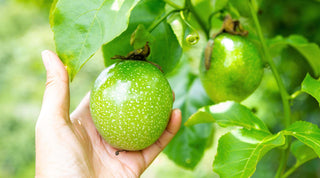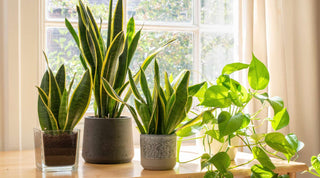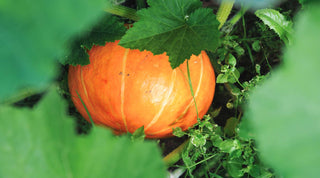Welcome to the world of organic gardening, where your soil's health dictates your plants' prosperity. Nurturing your garden with the right organic soil amendments is akin to setting a strong foundation for a building. This post delves into various types of organic soil amendments, such as fish emulsion, worm compost, mycorrhizae inoculant, and more.
These are natural treasures that will invigorate your garden. Whether you're a seasoned green thumb or just starting, these expert tips will guide you to a flourishing garden.
Fish Emulsion: A Liquid Wonder
Fish emulsion is a concentrated liquid product made from fish. High in nitrogen, it's perfect for leafy plants and acts as a quick-release fertilizer. Use it during the growing season by diluting it with water (follow the package instructions) and applying it to the soil around your plants. It's ideal for both indoor and outdoor plants, but remember, it can have a strong odor.
👉 Product we like: Neptune's Harvest Organic Hydrolized Fish & Seaweed Fertilizer
Worm Compost: Nature's Finest
Also known as vermicompost, worm compost is produced by the breakdown of organic matter by earthworms. It's incredibly nutrient-rich and improves soil structure, drainage, and moisture retention. Spread a layer of worm compost on the topsoil around your plants or mix it into the potting soil. It's gentle enough to be used at any time during the plant's life cycle.
👉 Product we like: Wiggle Worm 100% Pure Organic Worm Castings
Mycorrhizae Inoculant: Fostering Root Friendships
Mycorrhizae are beneficial fungi that form a symbiotic relationship with plant roots, enhancing nutrient and water uptake. Using a mycorrhizae inoculant when planting or repotting can significantly boost root development and overall plant health. Sprinkle the inoculant near the roots when planting.
👉 Product we like: Trifecta Mycorrhizal Root Enhancer
Composted Manure: The Age-Old Amendment
Composted manure from cows, horses, or chickens is an excellent soil conditioner. It adds organic matter and nutrients to the soil. Ensure it's well-composted to avoid burning your plants. It's best applied in the fall or early spring, giving time for nutrients to integrate into the soil before the growing season.
👉 Product we like: Espoma Organic Chicken Manure
Bone Meal: Phosphorus Boost
Bone meal is a great source of phosphorus, essential for root development. It's particularly beneficial for flowering plants and bulbs. Sprinkle bone meal into the planting hole or mix it into the soil at the base of the plants in the spring.
👉 Product we like: Down to Earth Organic Bone Meal Fertilizer
Green Manure: Cover Crops Magic
Planting cover crops like clover or alfalfa and then tilling them into the soil adds organic matter and nutrients. It's an excellent way to prepare your garden bed for the next season.
👉 Product we like: Hale Habitat & Seed Clovers & Alfalfa Mix
Biochar: Ancient Soil Enhancer
Biochar is a form of charcoal used to improve soil nutrition and carbon storage. It helps retain moisture and nutrients. Mix biochar into your soil to improve its overall texture and fertility.
👉 Product we like: Wakefield BioChar Premium Garden Soil Conditioner
Seaweed Extract: Oceanic Treasure
Seaweed extract is a versatile amendment, providing trace elements and hormones that boost plant health. It's usually applied as a foliar spray or drench and is gentle enough for regular use.
👉 Product we like: Neptune's Harvest Seaweed
Final Thoughts
When using these amendments, always remember that moderation is key. Over-amending can lead to nutrient imbalances and soil degradation. Always observe your plants' response and adjust accordingly. By incorporating these organic amendments into your gardening practice, you're not just nourishing your plants; you're participating in an age-old cycle of growth and sustainability that respects the earth and its resources. Happy gardening!



